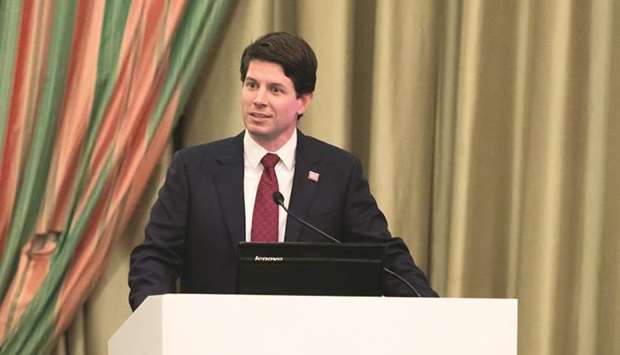While advances in artificial intelligence (AI) are shaping society in both the short and long term, there can be negative consequences of this developing technology, Carnegie Mellon University’s David Danks told an alumni event hosted by Carnegie Mellon University in Qatar (CMU-Q).
“We have found that algorithms, which are supposed to be the epitome of objectivity, can be deeply biased,” said Danks, citing examples of the negative consequences of AI in fields such as policing and hiring.
“At CMU, are trying to understand, in a deeply integrated way, the impact of the technology we are developing.”
Danks, who is the LL Thurstone professor of philosophy and psychology and head of the philosophy department at CMU’s Dietrich College of Humanities and Social Sciences, was part of a Carnegie Mellon leadership group visiting Qatar this week.
The group included CMU president, Farnam Jahanian, and members of the Board of Trustees and CMU leadership.
Danks pointed to CMU’s efforts to equip students with the skills to advance AI, while also considering the ramifications of the technology.
“At CMU we are leading the way in AI research and education, but also in ethics.”
Jahanian emphasised the role of CMU-Q graduates in shaping the future, saying: “For the past 15 years, Carnegie Mellon University in Qatar has offered a transformative education for the next generation of global leaders. You, our alumni, are an integral part of CMU’s borderless vision for education and innovation.”
Carnegie Mellon’s Qatar campus offers undergraduate programmes in biological sciences, business administration, computational biology, computer science and information systems.
Courses in ethics are available to students in all programmes.
Michael Trick, dean of CMU-Q, described the event as a valuable forum for alumni to learn more about the benefits, risks and ethical implications that arise from advances in AI.
“The conversations we are having this evening with our alumni are fascinating. Our graduates are are beginning to shape the future, and they are approaching these questions with great insight and empathy.”

Dr David Danks
